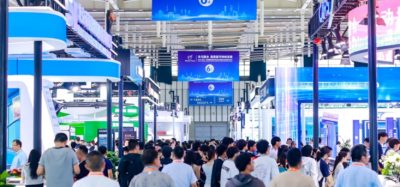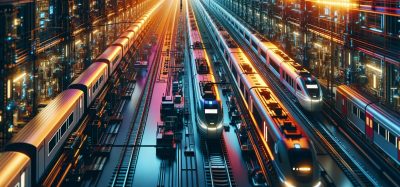Adding value in rail with digital solutions: Q&A with David McGorman, Unipart Rail
Posted: 2 September 2019 | David McGorman, Global Railway Review | No comments yet
Unipart Rail is utilising digital technology to support the rail industry with supply chain solutions that improve performance, reduce risk and optimise cost. Here Digital Director, David McGorman, delves deeper into these solutions and explains that the best results come from collaborative working to achieve maximum benefits.


To what extent do you think digital technologies are offering new possibilities for the rail sector?
Digital technology has been transforming business practices and processes for some time and the Industrial Revolution 4.0 is beginning to have a huge impact on all commercial sectors including the rail industry.
The increasing expectations of customers and government regulators are providing the impetus for rail companies to invest in new systems and technology that will deliver long-term financial and operational benefits. This includes opportunities for savings and efficiencies through deploying digital technologies.
Do you think there are areas of the rail industry that still lack an understanding of how modern technology and digital solutions can ultimately benefit the sector?
Rail is historically a mechanical industry and one that has a very good safety record. For these reasons it is resistant to change and is traditionally slow to adopt new technologies, and digital solutions are no different.
Digital technology has been transforming business practices and processes for some time and the Industrial Revolution 4.0 is beginning to have a huge impact on all commercial sectors including the rail industry.
It is incumbent on solution providers such as Instrumentel/Unipart Rail to demonstrate the benefits and reasons why the industry should change/adopt new solutions without importing new risk or performance impacts. It is my experience that the best results come from working together collaboratively to introduce digital technologies to achieve maximum benefits. This often involves cultural shifts that are required to adopt such technologies, and at Unipart Rail we are proud to support our clients along this journey.
How is Unipart Rail adding value to the rail industry as it travels deeper into Industry 4.0?
Unipart Rail addresses the challenges of the rail industry across the asset lifecycle by working collaboratively with our partners to deliver technology and supply chain solutions that improve performance, reduce risk and optimise cost.
Examples include Condition Based Maintenance products from Instrumentel, through to supply chain management and predictive forecasting that utilises machine learning, through to efficiencies created by using RPAs (Robotic Process Automation).
The Condition Based Supply Chain (CBSC) is our vision for the rail network – a concept that involves the seamless management of real-time data and information, combined with multiple data sources relating to the asset, to deliver increased operational efficiencies and maintenance savings.
CBSC draws on our position in the supply chain and an integrated digital ecosystem that turns data into actionable information to drive targeted maintenance, a highly responsive supply chain and continuous product and service improvement
How does Unipart Rail work to address the main challenges in rail when it comes to improving asset lifecycle?
From the initial supply right through to eventual decommissioning, Unipart Rail has interventions that can extend asset lifecycle, and ensure optimal performance during its life. Examples of this are delivered by our Service Centres and expert acquisition companies. These include:
- Embedded sensors to monitor performance
- Overhaul, service and repair
- Technical support
- Calibration
- New technologies to extend existing systems
- Obsolescence management
- Asset recovery and disposal.
Our aim is to deliver low risk, high performance and optimised cost solutions for our customers – and asset lifecycle extension is key to this.
How does Unipart Rail help the rail industry optimise cost?
The increasing expectations of passengers and government regulators are providing the impetus for train and network operators to invest in new systems and technology that will deliver long-term financial and operational benefits, and avoid costly downtime and fines by maintaining all systems at optimum performance. At the core of these performance gains is the ability to keep trains running for longer without disruption by minimising planned or unscheduled maintenance interventions and to massively transform maintenance regimes so that assets are in service for longer and service episodes are controlled by asset condition intelligence.
Our CBSC will deliver cost reductions for materials and parts through minimised inventory and more efficient management of assets.
Our CBSC will deliver cost reductions for materials and parts through minimised inventory and more efficient management of assets. There will also be increased efficiencies in the utilisation of the workforce who can then focus on vehicle and track enhancements to the benefit of customers and capacity.
Capacity and customer experience are enhanced as asset availability and uptime are improved by fewer interventions, whilst maintenance downtime can be further minimised through improved availability of parts at the point of use.
Improved availability at the point of use enables quicker turnaround and lower cost working, so for example, trains will be more readily maintained at lower cost lineside rather than in the depot.
Improved coordination of the supply chain will result in fewer delivery vehicle movements and reduced carbon emissions.
Many of our product innovations are aimed at achieving lower costs across the product lifecycle. Examples of this are the revolutionary Unipart Dorman LED signals which were the first to deliver accurate true signal colours, and our more recent ‘self cleaning maintenance free’ signal and Assisted Lift Trunnions. These led to a massive reduction in man-hours required for lamp changing and maintenance, as well as improving the safety regime through few people at the trackside and the elimination of working at height on signals.
Our Park Signalling products are directly targeted on maintaining and extending the life of SSI installations by augmenting the system with additional capabilities to support the smooth running of the signalling system.
Has Unipart Rail had to adapt the way it works with rail freight operating companies as the sector starts to harness digital solutions more?
In short, yes. While freight operating companies face many of the same challenges as train operating companies, they also have very different business imperatives. If we take the example of condition monitoring for freight, the locomotive may require similar instrumentation as a diesel multiple unit, however the wagons will require far less than a passenger car.
The sensors required are different (territory dependant) and the entire solution requires a lower price point given the asset value.
That said our methodology and approach would be the same, we work collaboratively with freight operating companies to understand their needs and provide cost savings and performance improvements through the introduction of technology and supply chain solutions.
In your opinion, how will digitalisation and advances in technology further disrupt the rail industry and is Unipart Rail ready to meet future challenges?
This will depend on the rate of adoption throughout the industry, and their ability to utilise technology and available data sources to drive informed decisions through the industry.
This includes the use of back-office technology such as RPA and automation. If used pervasively throughout the industry – including the supply chain – the potential for a step-change in the industry is huge; as seen in both the automotive and aerospace sectors.
Unipart Rail’s Condition Based Supply Chain looks to address many of the key themes identified in the UK’s Rail Technical Strategy Delivery Plan. This includes minimising disruption to train services, generating more value from data, delivering intelligent trains and infrastructure and delivering lower cost railway solutions.
For the train or network operator there are many benefits in having a Condition Based Supply Chain and these ultimately have a large impact on the 4Cs (Cost, Carbon, Customer and Capacity) that the UK rail industry has as performance imperatives.
The Condition Based Supply Chain will not only address the 4Cs, it will enhance safety and risk management. The Digital Eco-System provides access to full product information history and everything can be tracked at item level. As the Digital Eco-System uses cloud-based connectivity, the monitoring of performance data and notifications of automated delivery schedules can be accessed at any time, on any device, providing transparency and traceability of the supply chain network.
Biography










